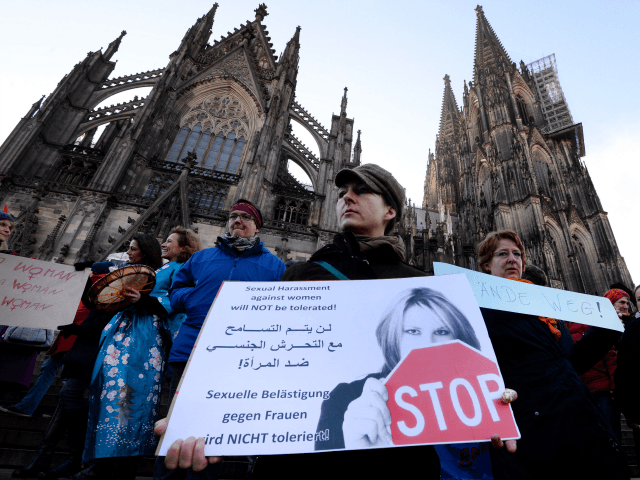Police in Austria are investigating a “slew of NYE sex attacks” after an evening that saw law enforcement accross Europe on high alert following the Cologne New Year’s Eve attacks of 2015-16.
At least eighteen women in the Tyrolean capital of Innsbruck were sexually assaulted in the city’s main square. The attackers were described as speaking English or poor German, with “dark complexions”, reports Germany’s international broadcaster Deutsche Welle.
“It has definitely been proven that they are foreign,” according to a police spokesman. “We are investigating. We have videos of poor quality but we are trying to make the best of them.”
“We’ve not had anything like this happen here before,” added Ernst Kranebitter, a senior police official. “They were dancing around the victims and then suddenly grabbed their breasts or stuck their hands between their legs.”
The description of the attacks seem to be consistent with the Arabic practice of taharrush gamea, a “game” which involves groups of men surrounding women in public places and sexually assaulting them, with bystanders unable to see what is happening.
CBS reporter Lara Logan became a high-profile victim of so-called taharrush while covering the Arab Spring uprisings in Egypt, but the phenomenon has spread to Europe following the migrant crisis and German Chancellor Angela Merkel’s declaration that there was “no limit” to the number of asylum seekers she was willing to admit towards the end of 2015.
Subsequently some one million migrants had arrived in Germany by the end of the year, and around 1,300 victims of sexual assault and theft among other crimes were recorded in the German city of Cologne during New Year’s celebrations. Attacks on a somewhat smaller scale were reported in cities such as Düsseldorf, Hamburg, and Stuttgart.
Attempts by the authorities and German media to cover up the attacks caused widespread anger and boosted support for the populist Alternative for Germany (AfD) party, which opposes mass migration.
Migrants were linked to a further 69,000 crimes or attempted crimes in the first three months of 2016, causing Merkel to redouble her efforts to empower the European Union (EU) to forcibly redistribute migrants around the bloc. This led to a backlash from Slavic member-states, which had been unhappy with her unilateral decision to invite migrants to Europe in unlimited numbers in the first place.
Hungary, which has served as the German Chancellor’s most determined opponent to mass immigration, held a referendum on the European Union’s “self-destructive” quota plan last October, with 95 per cent of voters choosing to reject it. Whether or not it can be implemented remains to be seen, although the European Commissioner responsible for migration policy, Dimitris Avramopoulos, had previously urged politician “stop thinking about the so-called political cost” of unpopular policies.
He further noted that, for his colleagues in Brussels, “the political cost means nothing” as they are not subject to popular elections.

COMMENTS
Please let us know if you're having issues with commenting.